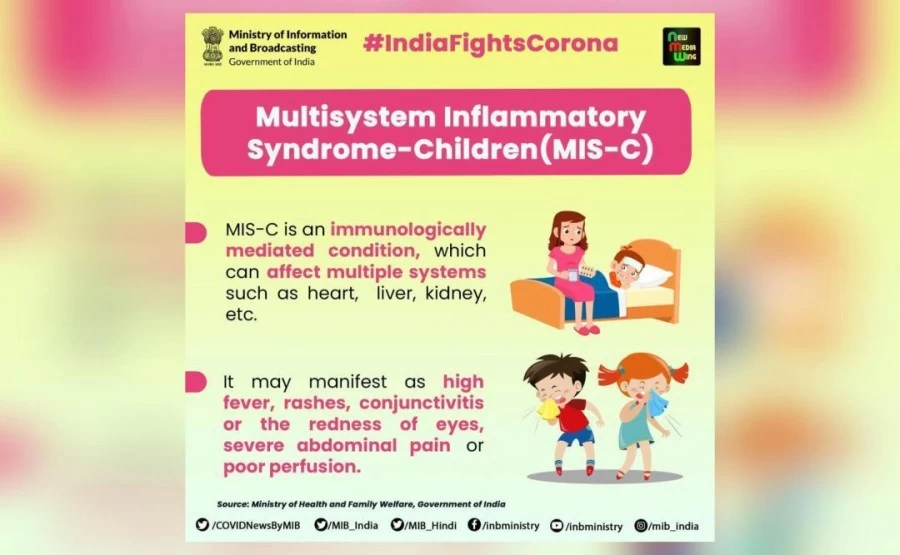New Delhi: Many patients suffering from coronavirus are likely to experience some post-infection complication and side-effects as well, in children one complication that may arise after coronavirus is the Multisystem Inflammatory Syndrome - Children(MIS-C) which is a immunologically mediated condition that affects multiple organs within the body. The syndrome can affect the patient's heart, liver, kidney among others organs. It is seen in children post-coronavirus infection.
The syndrome has a wide range of symptoms which a child might suffer. According to an article by Mayo Clinic, the symptoms of Multisystem Inflammatory Syndrome - Children (MIS-C) include fever, diarrhea, vomiting, stomach pain, rashes on skin, fast heartbeat, red eyes, redness or swelling of the lips, tongue, hands or feet, rapid breathing, headaches among others. The condition is seen in Indian children as a post-COVID-19 complications.
According to a statement by the Indian Academy of Pediatrics, earlier this year, after 2-6 weeks of asymptomatic or symptomatic Covid-19 infection in children, ‘Multi-system inflammatory syndrome (MIS-C),’ may be seen in some cases due to immune dysregulation with the incidence of 1 2 cases per 100,000 population. The statement added that if diagnosed early, the condition is treatable with 'good outcome.'
Multi-system inflammatory syndrome (MIS-C), which some children develop after coronavirus, can be a severe disease which may also need Intensive Care Unit (ICU) treatment. 'But majority are likely to recover, if treated on time' added that statement by IAP. The condition is mostly not transmitted to one person to another.
In India, several states have reported the cases of Multi-system inflammatory syndrome in children. By the end of August this year, Kerala has over 300 cases of MSI-C. In Tamil Nadu and Karnataka at least 14 and 29 cases of Multi-system inflammatory syndrome was reported in children over the last six months.


